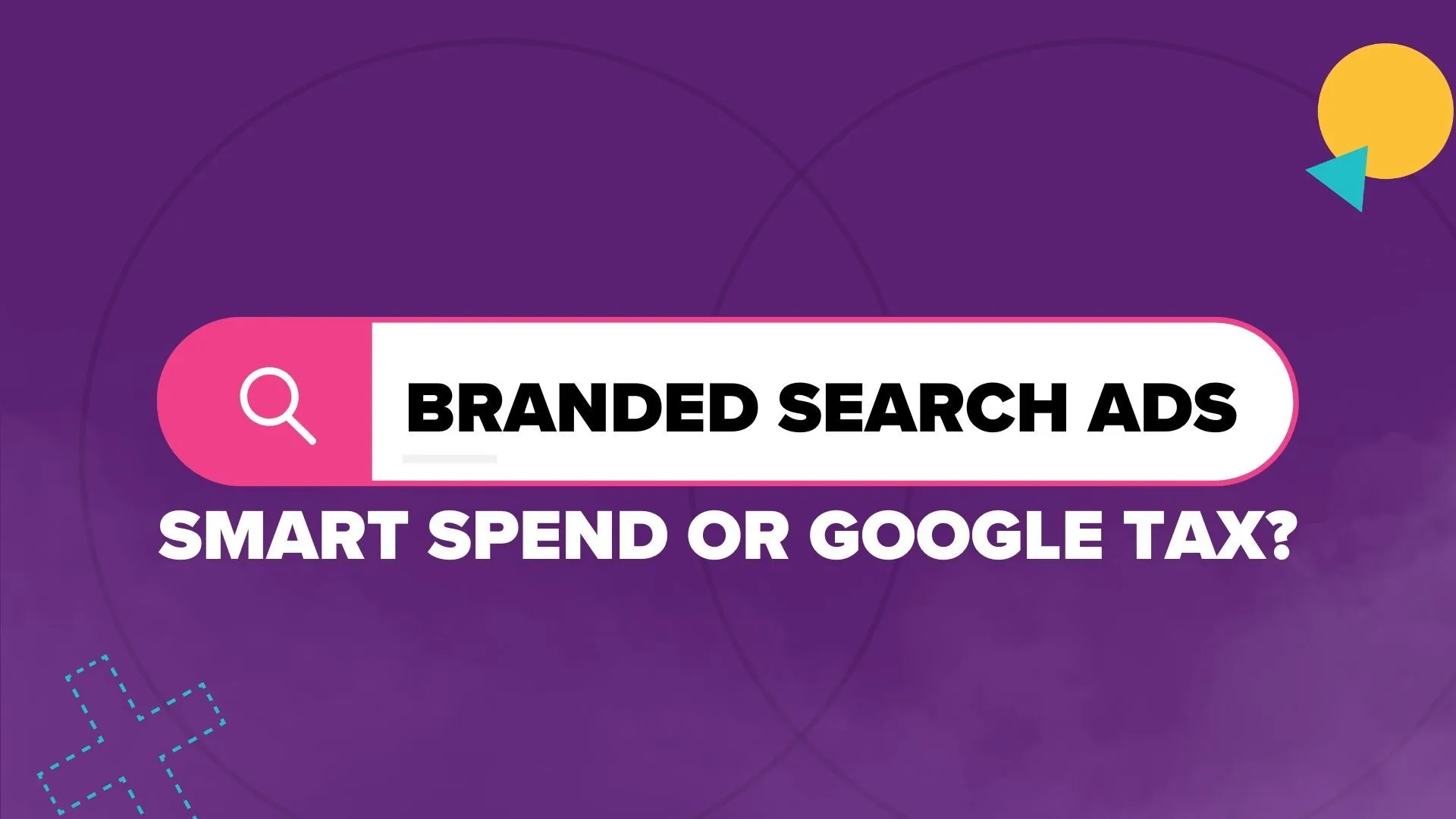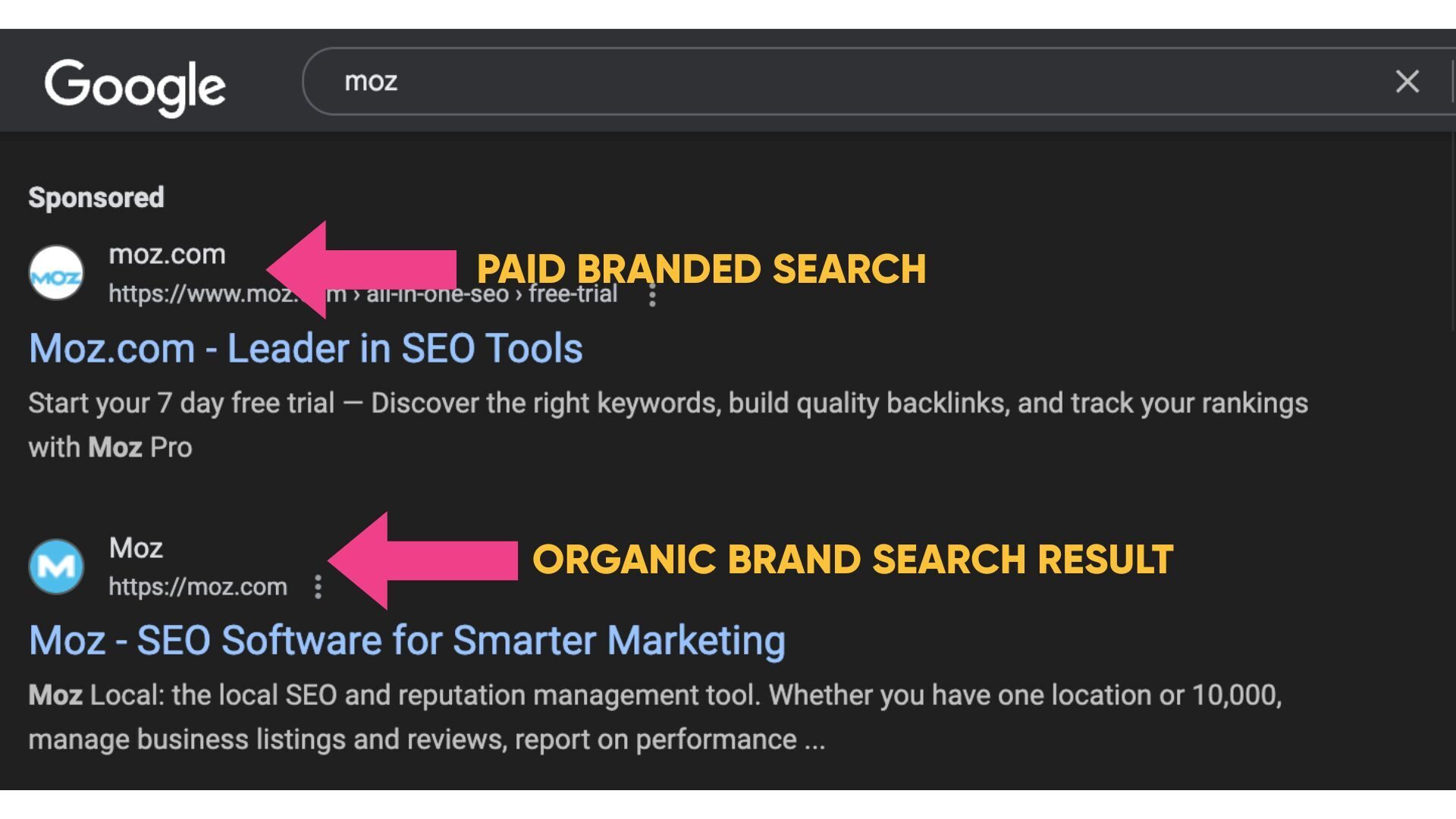Should You Bid on Your Own Brand in Google Ads? Here’s What the Research Says
Branded search ads deliver 1,299% ROAS vs 68% for generic terms. One retailer lost $43K in 2 weeks without them. Here's why your brand can't afford to skip them.

Picture this: You're scrolling through your Google Ads dashboard, and you see a line item that makes you pause. You're paying to advertise on your own brand name – the very name customers are already searching for. It feels like paying rent on a house you already own, doesn't it?
This is precisely the moment when many marketers make a costly mistake. They think, "Why should I pay for clicks when my website already ranks #1 organically for my brand name?" It's a logical assumption that has been proven devastatingly wrong time and again.
Just ask the U.S. retailer who discovered this the hard way. When they paused their branded search campaigns for just two weeks, they watched their paid search transactions and revenue plummet by 47-51%. While their organic traffic saw a modest 11% lift, the net result was brutal: $43,000 in lost revenue in just fourteen days.
This isn't an isolated incident. It's a pattern that's playing out across industries, from automotive to retail to B2B services. The question isn't whether you should bid on your branded keywords – it's whether you can afford not to.

The Numbers Don't Lie: Why Branded Keywords Deliver Outsized Returns
Let's start with the most compelling argument for branded search ads: they work exceptionally well. In fact, they work so well that the performance gap between branded and non-branded keywords is almost absurd.
Recent analysis of B2B Google campaigns revealed that branded search ads achieved an average 1,299% return on ad spend (ROAS). Non-branded keywords? They managed just 68% ROAS. That's not a typo – branded keywords delivered 19 times better returns than their generic counterparts.
The math behind this performance is straightforward. Branded keywords typically cost significantly less per click because there's usually less competition. In the B2B study mentioned above, branded clicks averaged around $6.00 CPC compared to $23 for non-branded keywords. But the real magic happens in conversion rates.
When someone searches for your brand name, they're not browsing – they're buying. These searchers are already familiar with your company and have moved past the awareness stage. They're further down the funnel, often just one click away from becoming customers. This intent translates directly into higher conversion rates and, ultimately, better ROI.
The Edmunds Experiment: A Cautionary Tale
To truly understand the value of branded search ads, we need to examine what happens when they're turned off. The automotive information site Edmunds.com conducted exactly this experiment, and the results were eye-opening.
When Edmunds paused their branded search campaigns, they lost approximately half of their brand-related traffic. Only about 50% of visitors who would have clicked on their branded ads found their way to the site through organic results. The other half? They simply disappeared – likely clicking on competitors' ads or abandoning their search entirely.
In some local markets, the impact was even more severe. Edmunds lost up to 72% of their branded search traffic without ads, meaning their organic listings captured just 28% of the clicks that paid ads had been driving.
This stark reality check demonstrates a crucial point: organic search is not a perfect substitute for paid search, even for well-established brands with strong organic rankings.
The eBay Exception: Why Most Brands Aren't eBay
Now, you might be thinking about eBay's famous experiment that reached the opposite conclusion. When eBay turned off their branded search ads, they found virtually no drop in total visits – their organic listing picked up nearly all the traffic that paid ads had been capturing.
The researchers concluded that for a massive, top-of-mind brand like eBay, "natural search is close to a perfect substitute for paid search" on brand queries. This finding has been cited countless times to argue against branded search advertising.
But here's the critical insight: most companies are not eBay. eBay enjoys a level of brand recognition and market dominance that's extraordinarily rare. For the vast majority of businesses, the Edmunds experiment is far more representative of reality than the eBay study.
The Incremental Gain Reality Check
One of the most persistent concerns about branded search ads is cannibalization – the fear that you're essentially paying for traffic you would have received for free anyway. This concern is understandable, but it misses the bigger picture.
Yes, some cannibalization occurs. When your branded ad appears above your organic listing, it will capture some clicks that would have gone to your organic result. But the key question isn't whether cannibalization happens – it's whether the incremental gains outweigh the cannibalized traffic.
Google's own research suggests they do. Their widely-cited "Search Ads Pause" meta-study found that 89% of ad traffic is not replaced by organic clicks when ads are turned off. In other words, only about 11% of paid clicks would have happened organically anyway.
A Search Engine Journal case study reinforced this finding with real-world data. When a brand's ads accidentally went offline, organic traffic increased but fell far short of previous levels. Running both SEO and PPC together generated 30-40% more traffic than organic alone, with the incremental sales from branded ads delivering a 277% ROI.
As the study's author put it: "Yes, SEM ads will steal 'free' traffic from organic… But it will over-produce and drive incremental traffic, beyond what organic could drive on its own."
Google's Shifting Landscape: The Disappearing Organic Real Estate
The case for branded search ads has only strengthened as Google has evolved its search results pages. The search giant increasingly prioritizes paid placements above organic results, fundamentally changing the game for brand visibility.
Today's Google search results can display 3-4 sponsored links at the top of the page before showing any organic listings. On mobile devices – where most searches now happen – this means users might have to scroll past multiple ads and other features to reach organic results.
Recent data from Moz revealed the dramatic impact of this shift. Over just a two-year period, organic results' click-through rates dropped 25% on desktop and a staggering 55% on mobile. The above-the-fold space has become increasingly dominated by paid results and other Google features.
This evolution means that even if you rank #1 organically for your brand name, there's no guarantee users will see your listing without scrolling. Many companies have found themselves paying what they call the "Google tax" – the cost of ensuring they maintain prime real estate on their own branded search results.
The Defensive Strategy: Blocking Competitors
Beyond capturing incremental traffic, branded search ads serve a crucial defensive purpose. When you don't bid on your branded keywords, you leave the door open for competitors to swoop in and capture that high-intent traffic.
This isn't theoretical. Digital marketing agencies regularly report cases where competitors immediately began bidding on a brand's keywords the moment they paused their own campaigns. The result? Traffic that should have gone to the brand owner instead flowed to competitors who were smart enough to capitalize on the opportunity.
Even when competitors aren't actively bidding on your brand terms, they can appear in the auction at any time. Branded search campaigns act as a protective barrier, ensuring that your brand owns the top spot for your most important keyword – your own name.
The Control Factor: Messaging and Landing Page Optimization
Branded search ads offer something organic results cannot: complete control over your message and user experience. While your organic listing might default to your homepage with a generic meta description, your paid ad can highlight current promotions, direct users to specific landing pages, and craft compelling copy that speaks directly to what brand searchers are looking for.
This control extends to ad extensions, which can showcase additional information like phone numbers, site links, and callouts. The result is a more comprehensive, informative presence that takes up more screen real estate and provides more pathways for users to engage with your brand.
The Halo Effect: When 1+1 Equals More Than 2
Interestingly, running both branded search ads and maintaining strong organic rankings creates what marketers call a "halo effect." When searchers see your brand appearing in both paid and organic results, it builds credibility and trust. This dual presence can actually increase the likelihood that users will click on either result.
The psychological impact is significant. Brands that dominate both paid and organic results for their own name appear more established and trustworthy than those with just one listing. This perception can translate into higher overall click-through rates and better conversion performance.
Making the Decision: When Branded Search Ads Make Sense
Given all this evidence, when should you invest in branded search advertising? The answer for most businesses is straightforward: if you're running any paid search campaigns, branded keywords should be your first priority, not an afterthought.
The exceptions are rare and specific. If you're a dominant brand with no competition for your branded terms, extremely strong organic rankings, and clear data showing no incremental benefit, you might consider skipping branded ads. But even then, many experts recommend maintaining at least minimal branded campaigns as insurance against competitive threats.
For everyone else – which is virtually every business – the combination of high ROI, defensive benefits, and increased control makes branded search advertising a no-brainer investment.
The Bottom Line: Protection and Performance
The debate over branded search advertising often gets framed as a question of whether you should pay for traffic you might get for free. But this framing misses the point entirely. The real question is whether you can afford to lose the traffic, revenue, and competitive protection that branded search ads provide.
The evidence is overwhelming: businesses that skip branded search advertising typically see meaningful drops in traffic, leads, and revenue. The incremental gains from branded campaigns almost always outweigh the cannibalization costs, especially when you factor in the defensive benefits and enhanced control.
In today's competitive digital landscape, branded search ads aren't just a nice-to-have – they're essential infrastructure for protecting your most valuable online real estate. The retailers, service providers, and B2B companies that understand this are the ones who'll thrive while their competitors wonder where their traffic went.
As that U.S. retailer learned the hard way, the cost of not bidding on your brand name isn't just theoretical – it's $43,000 in lost revenue over two weeks. In a world where every click matters, can you really afford to leave money on the table?
